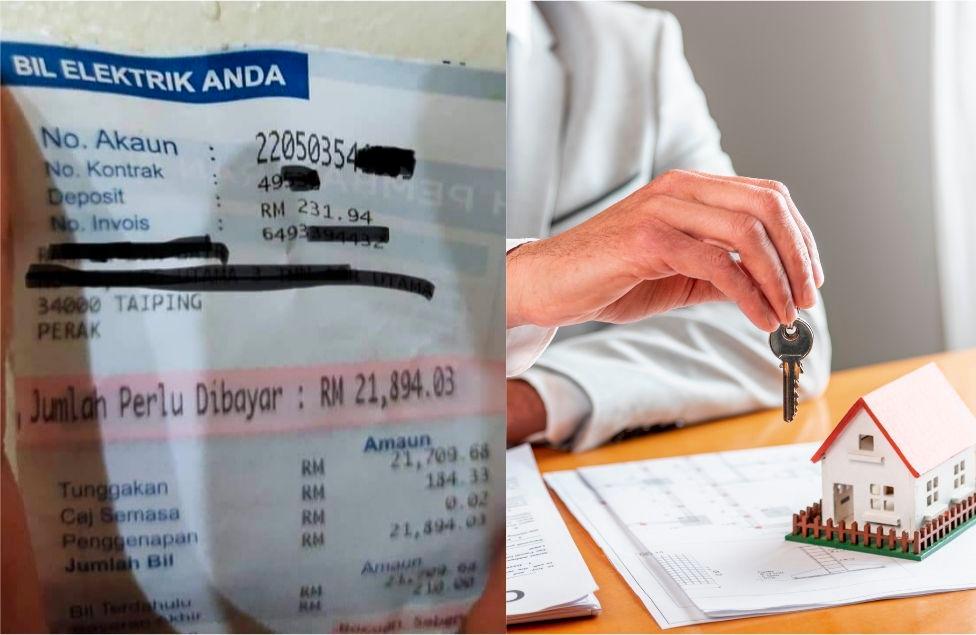NOT many individuals can be trusted to fulfil their end of an agreement these days.
Recently, a landlord shared a cautionary tale warning other landlords to be more vigilant in checking up on their tenants’ utility payments.
Property agent Rizal Nasir shared his advice on a Facebook post, showing a picture of an unpaid electricity bill amounting to a whooping RM21,094.03 left behind by a tenant.
“It depends on what kind of owner you are. Are you the kind of landlord that diligently checks their tenants’ bills or does not care about it at all?
“Property owners need to equip themselves before being deceived by their tenants,” he said.
Regarding the payment of the tenants’ bills, Rizal suggested for property owners to let their new tenants open an account under the owner’s name first.
After that, the owners were advised to create a utility deposit and implement their terms about the bill payments in an “agreement”.
“If the tenant’s arrears come up to nearly the same amount of the utility deposit, the owner has the right to use the deposit to pay the arrears off and close the account set up initially under their name.
“If the tenant wants to keep renting the space then they can open a new account under their name instead,” he added.
Another alternative Rizal proposed is for the tenants to open their own payment account so that they are in charge of paying their own utility bills instead of leaving it to the landlord.
Netizens questioned why the tenant’s electricity supply had not been cut off considering the high bill.
In the comment section on X, Tenaga Nasional Berhad (TNB) replied to a comment explaining that the organisation cannot cut off the property’s electric supply if the premises are locked.
Not only that, TNB cannot enter at will into the property premises without the owner’s permission.
Besides that, a property negotiator, Rubi Hasman, in a Facebook post said that the property’s potential buyer will get the waive of the electricity bill instead of the owner, whether they are registered with Tenaga Nasional Berhad. or not.
“A debt is still a debt as long as it is still under the previous owner,” she explained.









